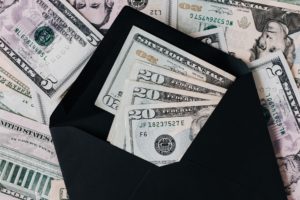When you were younger, you might have made some poor financial decisions. Maybe you found yourself deep in credit card debt with a high interest rate. Or maybe you still have loans from school.
No matter what your situation, getting rid of debt is an important part of avoiding bankruptcy. By following these steps, you can become debt-free sooner rather than later.
1. Avoid Using Credit Cards Every Day
Unless you are using your credit card for rewards and you know you can pay it down every month in full, it is a good idea to avoid using it for normal expenses. Too many people are tempted to buy things they wouldn’t otherwise when using a credit card.
If you do want to keep a credit card, consider using it for emergencies only. That might be a needed car repair that you can’t yet afford or a new pair of glasses to replace your broken ones. But once you start adding to your emergency fund, you’ll be better able to pay for things in cash instead of needing to use credit. With this method, you can completely eliminate cards from your life. You should never think of a credit card as free money.
2. Avoid University Unless if Your Career Choice Requires It
This advice might go against what you heard during high school. You might think you have to attend college to become an adult. But that isn’t true. Of course, if you are wanting to be a scientist, engineer, or a nurse, then you do need a bachelor’s or advanced degree.
But if you dream of being a welder, baker, or restaurant owner, you don’t need a four-year degree. Instead, consider going to a community college to get your associate’s degree or a certification in your field. Consider becoming an apprentice if you desire to be a fisherman or a carpenter. You can even teach yourself skills, such as coding or programming.
3. Pay Yourself Before Others
Of course, you have to pay your bills and the rent. But before you do any of that, skim some off and put that in your savings account. Try to save a minimum of 10 percent of the initial amount. So, if your car has problems, then you can easily pay for the repairs. Or you can easily buy another one without going into debt.
If you don’t have that much in your savings account, consider lowering your expenses. Cut out unnecessary subscriptions. If your internet is too expensive, consider using Wi-Fi at the library, especially if you are out and about most of the day. Look at your phone bill. Do you really need unlimited data, or would it be better to cut out unnecessary screen time?
4. Live Below Your Means
You hear a lot about the importance of living within your means. But to pay down debt and build wealth, you need to spend much less than you make. It can be harder than you might think. Creating a budget is essential here. Start by determining the amount you bring in your home each month. Then, create budget categories that add up to less than that.
If you need a new car, don’t take out a loan to pay for it. Instead, use your old one, take the bus, or walk while you save up to get one. It might be painful, but it’s often more freeing to not have to spend all your extra money to pay down your debt.
5. Your Primary Bill Is Debt
Once you have your emergency fund, paying off your debt should be the most important financial priority after your rent or mortgage. Put as much extra toward your debt as you’re able to each month. Reducing your other expenses allows you to pay that debt a little faster.
Closing Thoughts
Getting rid of debt doesn’t have to be hard. By putting money in your savings and paying off debt before your other expenses, you can live more comfortably. Paying some extra each month is a good strategy for getting out of debt sooner than you think. Once you have paid off your debt, you can focus on saving for retirement or even a fun getaway.



